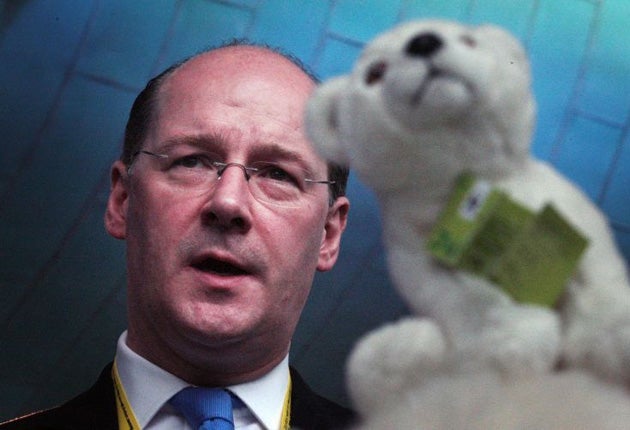Your pledge to freeze council tax bills does not add up, SNP told
Senior councillor warns inflation and rising fuel prices will batter budgets

Your support helps us to tell the story
From reproductive rights to climate change to Big Tech, The Independent is on the ground when the story is developing. Whether it's investigating the financials of Elon Musk's pro-Trump PAC or producing our latest documentary, 'The A Word', which shines a light on the American women fighting for reproductive rights, we know how important it is to parse out the facts from the messaging.
At such a critical moment in US history, we need reporters on the ground. Your donation allows us to keep sending journalists to speak to both sides of the story.
The Independent is trusted by Americans across the entire political spectrum. And unlike many other quality news outlets, we choose not to lock Americans out of our reporting and analysis with paywalls. We believe quality journalism should be available to everyone, paid for by those who can afford it.
Your support makes all the difference.The Scottish government's pledge to householders that their council tax bills would be frozen for a further year was under threat just hours after it was made yesterday, when councils said a substantial amount of extra money would be needed to fund the measure.
The Finance Secretary, John Swinney, was unequivocal in his promise to keep the cap on council tax in his speech at the SNP's annual conference in Perth. "When other bills are rising, the people of Scotland can rely on the Scottish Government to freeze their council tax," he said.
But councils will be given only £70m to fund the freeze – the same figure as last year – despite having to face a doubling of inflation, and rising fuel bills since then. One of Scotland's most senior councillors said local authorities would struggle to balance the books if the freeze is enforced. Steven Purcell, head of Glasgow City Council, said another freeze would be "nigh on impossible without extra money". He added: "Only councils can freeze council tax."
Scottish councils have been engaged in desperate attempts to renegotiate the funding package for the freeze since last week. They are understood to want at least double the £70m that has been offered to them. Mr Swinney made it clear yesterday that he will knock back any attempts to up the funding package to the £140m, adding that the £70m had more than covered the costs of the scheme last year.
Mr Swinney also promised: "From April next year, small businesses will get a further boost, with 100 per cent rates relief available to tens of thousands of our smallest businesses."
He announced that the Scottish Government will go further than Westminster in implementing tough greenhouse gas emissions targets. He is planning to include annual targets for cutting emissions in the Scottish Government's climate change bill, due to be this year. He told delegates that the aviation and shipping industries will be included.
A pledge to introduce annual carbon reduction targets of 3 per cent appeared in the party's last general election manifesto but campaigners have since been concerned that the SNP's support for the targets had evaporated. "When we set out our climate change Bill later this year we will demonstrate that we have listened to the mood of our country," he said. "We will demonstrate on the vital issues of emission reduction targets, on the inclusion of international air travel and shipping and on the inclusion of all six greenhouse gases, that Scotland will have a climate change Bill able to lead international action."
Friends of the Earth Scotland said new laws must ensure that the targets are enforceable. Duncan McLaren, the chief executive, said: "We've long campaigned for annual targets to ensure ministers can be held properly accountable, and that rapid and continuous cuts in emissions are made. ministers need to remember that cuts in emissions need to be deep and rapid to ensure that global emissions peak and then decline within the next few years. Annual targets that start low and rise gradually may not be adequate."
A day earlier, Ed Miliband, the new Secretary of State for Energy and Climate change, pledged to cut the UK's greenhouse gas emissions by 80 per cent by 2050. He said the previous 60 per cent target had been shown to be insufficient by scientific analysis. But he said that aviation and shipping would not be included in a Bill to update the target, raising fears that two of the fastest-growing areas of emissions would increase unchecked.
Join our commenting forum
Join thought-provoking conversations, follow other Independent readers and see their replies
Comments